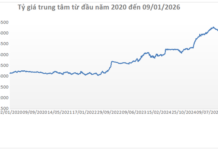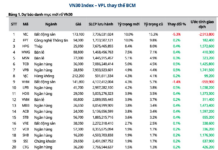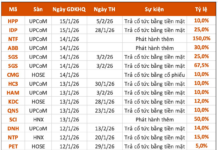On October 3, 2025, during the Ministry of Finance’s quarterly press conference, Mr. Lưu Đức Huy, Deputy Director of the Department of Tax Policy Management and Supervision, addressed media inquiries regarding real estate tax policies.

The Ministry of Finance confirmed that there have been no changes to real estate tax policies as of now.
According to Mr. Lưu Đức Huy, current real estate tax policies have specific regulations covering registration, usage, and transfer. Regarding new policies, he emphasized the need for comprehensive and holistic research.
The Department of Tax Policy Management and Supervision is collaborating with relevant units to develop policies aligned with practical realities and the Land Law. Mr. Huy affirmed that real estate tax policies remain unchanged at present.
Explaining the withdrawal of the proposed 20% tax rate on income from real estate transfers in the draft Personal Income Tax Law, Mr. Huy stated that the Ministry of Finance incorporated feedback to maintain the current 2% rate.
Previously, the Ministry proposed a 20% tax rate on income from real estate transfers, calculated on each transaction’s net income (selling price minus purchase price and related costs).
For cases where the purchase price and costs are unverifiable, tax is calculated directly on the selling price based on holding duration: 10% for under 2 years, 6% for 2–5 years, 4% for 5–10 years, and 2% for over 10 years or inherited properties. Individuals inheriting property but engaging in speculation are taxed as real estate businesses.
The Ministry of Finance argued that taxing personal income from real estate transfers based on actual income (selling price minus purchase price and legitimate costs) accurately reflects the economic nature of the transaction. “This aligns with the current 20% corporate income tax rate,” the draft law stated.
The Ministry stressed the need for a comprehensive real estate transaction database to accurately determine capital costs, along with invoice and documentation requirements for deductible expenses.
The drafting agency also highlighted the importance of synchronizing implementation with land and housing policies and leveraging robust information technology for real estate registration and transfer management. This ensures tax authorities have sufficient information and legal grounds to determine holding periods and other tax calculation factors.
Q3 GDP Estimated to Surge by 8.22%
On the morning of October 5th, during the regular September 2025 government meeting, Minister of Finance Nguyễn Văn Thắng announced that the estimated GDP growth for the third quarter was 8.22% compared to the same period last year. Excluding 2022, when the economy rebounded strongly post-COVID-19, this marks the highest third-quarter growth since 2011.
Finance Ministry Proposes 0.1% Income Tax on Gold Bar Sales
Following consultations with the State Bank of Vietnam, the Ministry of Finance has submitted a proposal to the Government, incorporating it into the draft Law on Personal Income Tax. This proposal mandates the imposition of personal income tax on transactions involving the transfer of gold bars. The initially suggested tax rate stands at 0.1% of the transfer value.
Over 13,700 Surplus Land and Property Assets Await Resolution
The above information was announced by a representative of the Public Asset Management Department (Ministry of Finance) during the regular Q3-2025 press conference, held by the Ministry of Finance on the afternoon of October 3rd.













































